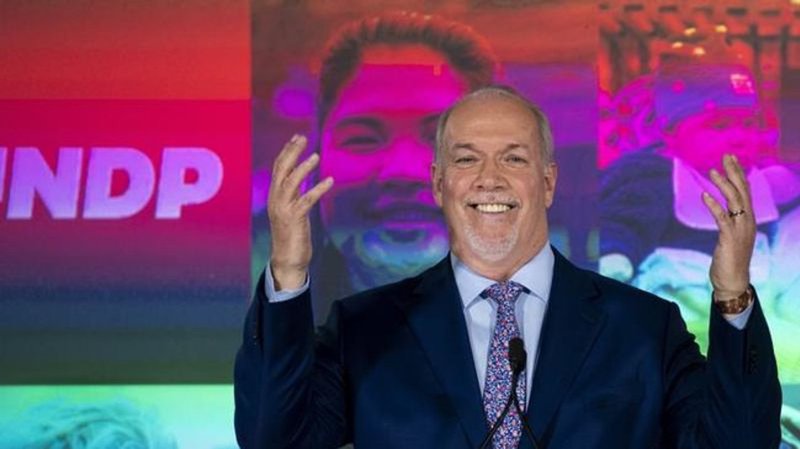
New Democrats turn minority into majority in British Columbia election
The New Democrats won a majority government in the British Columbia election on Saturday as voters rewarded John Horgan with a second term after he took a gamble on calling an election during the COVID-19 pandemic.
With more than 80 per cent of the polls reporting results, the NDP had won enough seats to form a majority government. The final count won’t be available for three weeks due to the record number of ballots cast by mail, which have not been counted.
The New Democrats won 53 seats, the Liberals 27 seats and the Greens three. Four ridings were too close to call.
Horgan said the NDP would continue to steer the province through the pandemic while waiting for the final results from Elections BC.


